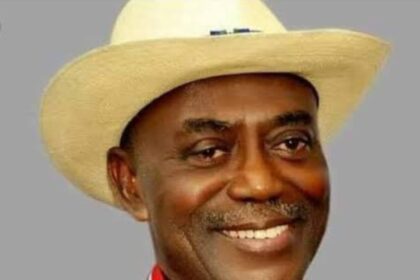The immediate past Chief Justice of Nigeria (CJN), Justice Walter Onnoghen, yesterday revealed the circumstances that surrounded his vacation of the seat about two years after.
Onnoghen, who resigned his appointment on April 5, 2019, three months after his suspension by President Muhammadu Buhari, said the President acted on a baseless rumour that he held a meeting with ex-Vice President Atiku Abubakar in Dubai ahead of the last general elections.
It was his first public comment on the issue.
He expressed disappointment that despite its huge investigative capacity, the Presidency failed to authenticate the rumour before removing him.
Onnoghen, who spoke at the public presentation of a book “Fundamental Rights (Enforcement Procedure) Rules, 2009: Practice, procedure, forms and precedents,” authored by Ogwu James Onoja (SAN), said although the rumour was brought to his attention before his removal, he chose not to address it because he never met with Atiku in Dubai and had ever encountered the former Vice President in person all his life.
According to him, the situation got to a head when all of a sudden his trial before the Code of Conduct Tribunal (CCT) was put in motion even when he had not been invited or accused of any wrongdoing.
He faulted his trial process before the CCT, saying that in the course of the trial, and when parties had joined issues, an ex-parte application was suddenly brought in, and “what followed was my illegal and unlawful suspension as the CJN”.
Continuing, he said: “Prior to my suspension, I was confronted with no allegation.
“There were rumours that I met with Atiku in Dubai. As I am talking here today, I have never met Atiku one on one in my life.
“As if that was not enough, I was also accused of setting free high-profile criminals, whereas I ceased to be a High Court judge as far back as 1978.
“In the Supreme Court, I did not sit alone; we sit in panel. In all these rumours and outright accusations, I was not given an opportunity to defend myself.
“Let me make it clear that the office of the CJN was not for Onnoghen but for all Nigerians who had sworn to guide and protect the Constitution of the Federal Republic of Nigeria.
ADVERTISEMENT
“To say the least, the period of my ordeal was the darkest era in the history of the Nigerian judiciary.
“As I have said several times, judicial officers must be courageous. And I want to beg all serving judicial officers not to be discouraged by what happened to me in the hand of the executive arm of the government.
“Emerging Nigerian judges should not go the direction of injustice, because without courageous judges and justice, Nigeria is doomed.
“Here, let me sound this note of warning that the appointment of judicial officers must never be allowed to be politicised, otherwise, democracy and democratic governance will be dead.
“During my tenure, the problem of Nigeria was not the Nigerian Judiciary but those who had no regard for the rule of law.
“We must therefore be committed to the rule of law and dispense justice without fear or favour. Truth stands. Crush it, it will stand because it is truth.”
Onnoghen, who was accompanied to the event by his wife, said his 2019 ordeal was not the first he would be a victim of unfounded rumour.
He recalled how, during the Obasanjo administration, he was indicted for wrongdoing by a commission of inquiry, even after defending himself before the commission.
He said unlike Buhari, Obasanjo, as a leader who listens to advice, referred the matter to the National Judicial Council (NJC) for review.
Onnoghen said when the case was tabled before the NJC, the truth came out and he was exonerated.
He urged Nigerians to always stand by the truth, adding that it is only justice that could save the country.
Also speaking, former Attorney General of the Federation and Minister of Justice, Kanu Agabi (SAN) and Lucius Nwosu (SAN) said the continued sustenance of democracy requires a vibrant and courageous Judiciary.
Agabi said the country would perish without a vibrant judiciary.
He urged the courts to interpret laws in line with the intention of makers of the laws to ensure justice.
Agabi claimed that the late Justice Sylvester Ngwuta of the Supreme Court, who died on March 7 this year, was humiliated to death on the bench by those who have no respect for due process of law.
Nwosu condemned what he described as the injustice being perpetrated against Nigerians, especially judicial officers.
He claimed that Ngwuta died of intimidation and unnecessary harassment suffered at the hands of biased security agents.
Nwosu said the strategy adopted by the defence team in Onnoghen’s trial at the CCT was perfected in Onoja’s law office.
He commended judges who, he said, refused to be intimidated during Onnoghen’s trial.
Onnoghen resigned on April 5, 2019 following the recommendation of the National Judicial Council (NJC) for his early retirement.
He had first been suspended from office on January 26, 2019 on the strength of an ex parte motion filed against him by the federal government at the Code of Conduct Tribunal for allegedly failing to declare his personal assets before taking office in 2017.


